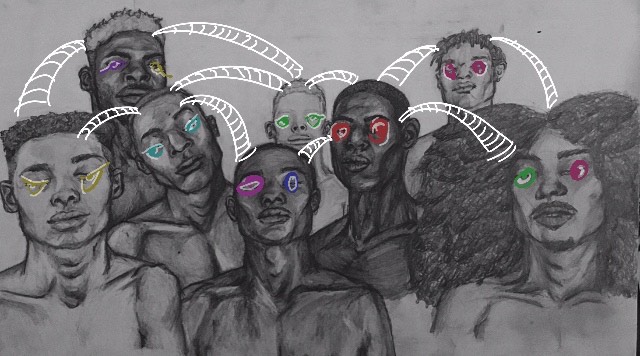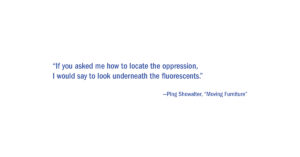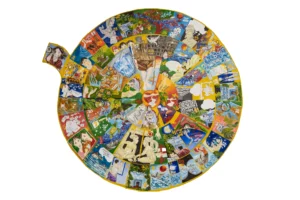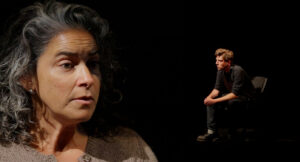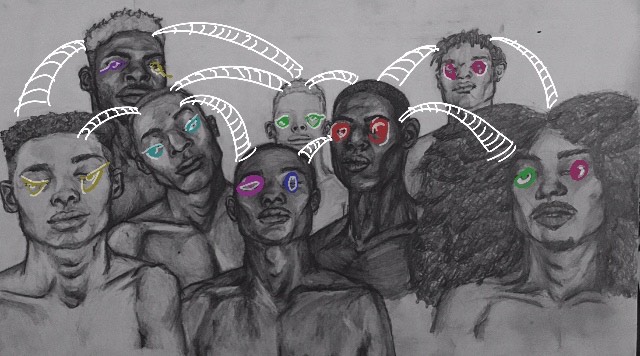
ARTIST STATEMENT
The premise of restorative justice is that communication is key to healing. By giving both victims and offenders a chance to have a conversation, to have a meeting of minds the needs of victims are more likely to be properly defined and addressed. The title of this piece is “Eyes open, Minds open”, a relatively straightforward reference to the fact that there needs to be 1) a face and a human attached to both victims and perpetrators and 2) an openness and willingness to seek resolution. For my piece, I first drew several Black men with graphite; their eyes are closed, and some have their faces contorted into vaguely painful expressions. Over these grim expressions, colourful open eyes have been digitally drawn, along with bridges between their heads.
The different colours of eyes represent different evil eyes; red, purple, green, yellow, blue, pink. Each of these colours represents a human belief, trait, or need; such as happiness, security, protection, karma, etc. My submission relates to restorative justice by first showing a population that is almost always only represented as victim or perpetrator in society, and then showing the colourfulness that results from bridges, or understandings, between people being built.
I hope people will take away a colourful perspective on a historically misrepresented group, an idea about the many possibilities resulting from conversations across differences, and the possibility for closure.
I am a Black junior at Amherst College majoring in Anthropology and, tentatively, Art. Restorative justice is not something that I’ve been able to see in systemic practice, but it is something I’ve learned about and been interested in. Punitive penal systems recreate cycles of violence and crime that negatively affect all communities, and our ability to see other human beings as humans. It’s important, I think, for us to constantly remain aware of the human aspect of criminal justice- to constantly believe in personhood, so as to not alienate and discriminate.

